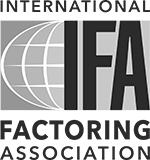Merchant Cash Advance Loans – When and How to Use This Financing Tool

I live in the world of business finance and speak to Business Owners every day regarding their business and cash flow requirements; there are many products and solutions available – each has its place. Many Business Owners are experts in their craft, but not finance experts and often select the wrong financing solution for their business.
Merchant Cash Advance loans “MCA” have exploded onto the marketplace and are gaining in popularity daily. The structure of this “Loan” is essentially selling the future revenues of the business to get money upfront. The price of this financing tool is at a significant premium; typically, the payback is 1.2 to 1.4 of the funds received over a short period (3-12 months). The “Lender”, or more appropriately defined as the Buyer of Future Revenues or “Buyer”, requires direct access to credit card receipts and/or the business bank account. The Buyer has first right to the businesses receipts and collects daily or weekly which leaves the business owner with a lack of control over their cash flow.
The underwriting, approval, and funding typically takes 2-5 business days. That’s the appeal to the Business Owner; its fast money and easily accessible. There is no robust underwriting process; the Buyer, is charging a high enough rate to absorb losses in the case of bad loans.
So what is the rate? Well let’s walk through an example:
A Business Owner sells $12,000 of future revenues for $10,000 today, and is paying back the entire $12,000 over a 3-month period. This is a 1.2x payback or 20% premium. Simple annualized interest would make this an 80% interest rate. The cost of funding is $2,000 on $10,000 or 20% multiplied by 4 (to annualize the rate – because it’s paid back in 3months).
Are there no usury laws that protect the consumers? This is intentionally not structured as a loan, it is a purchase of future revenues; therefore, usury laws are not applicable. Furthermore, this is a business transaction and not protected by consumer law. This transaction is only beneficial to the Business Owner when the risk of loss exceeds the cost of funding, and the business owner is 110% sure that they will have the money for repayment.
Well you may ask, when is paying an 80% interest rate ever appropriate? Let’s look at an example:
- The freezer in a Steak House Restaurant breaks down,
- The Health Inspector is due for an inspection anytime this month,
- The inventory in the freezer costs $30,000,
- The restaurant is heading into a busy season (Graduation or Valentine’s Day) and last year’s profits for the next 2-3 months is sufficient to pay-off the loan.
In this case, paying $2,000 to save $30,000 makes sense. The interest rate is irrelevant because the Business Owner would be in a much worse situation if they hadn’t used a MCA loan.
What Business Owners should not do is use this funding solution on the prospect of future expansion, to retire other debt, or to purchase an expensive piece of equipment. There are other financing tools that are more appropriate for those scenarios. I’ve seen too many businesses take out 2-3 MCA loans, and get in over their head. Please share this advice with other business owners so they can make informed financial decisions.
At Liquid Capital Business Funding, we help businesses in North Carolina find the best financing solution to meet their needs. If you need financial advice, please contact me and we’ll discuss the options available to you.




